Rheumatology Fellowship
About the Program
Our Mission Statement:
Our mission is to support the growth of our fellows so that they can be transformative agents of change who advance well-being and equity within their communities.
At all steps of their growth, we channel and reciprocate their motivation for clinical excellence, scholarly inquiry, and quality improvement.
This Mission Statement defines who we are, and its ethos instructs each and every initiative within our fellowship program.
Fast Facts:
- Our 24-month program provides extensive outpatient and inpatient clinical experiences in adult rheumatology. We also offer a 36-month dual-certification pathway for qualified applicants interested in both Allergy/Immunology and Rheumatology.
- Clinical training takes place at University of Iowa Health Care (including the Stead Family Children’s Hospital) and the adjoining Iowa City Veterans Affairs Health Care System.
- Musculoskeletal ultrasound is integrated into our core curriculum, with an innovative series of hands-on workshops and sessions.
- We closely collaborate with our colleagues within and beyond the Division of Immunology to ensure that fellows have access to opportunities throughout the University of Iowa. This includes:
- Combined Grand Rounds with Allergy/Immunology
- Regular participation in pediatric rheumatology outpatient clinic
- Rotations in musculoskeletal radiology
- Research opportunities within the Center for Immunology and Immune-Based Diseases
- Research support for fellows through the Institute for Clinical and Translational Science
- The Fellows as Clinician Educators (FACE) Program, for fellows interested in advancing their clinical teaching skills
- We welcome two fellows each year into our program.
Specific Goals and Objectives
Mission Statement:
Our mission is to support the growth of our fellows so that they can be transformative agents of change who advance well-being and equity within their communities.
At all steps of their growth, we channel and reciprocate their motivation for clinical excellence, scholarly inquiry, and quality improvement.
We support this mission by establishing the following specific goals and objectives.
1. Clinical competence. We define clinical competence as:
- Professionalism and humanistic characteristics that uphold integrity, compassion, and respect for patients and their families, caregivers, peers, and other health care team members.
- Interpersonal communication skills with patients and other health care team members that is mindful of socioeconomic circumstances and levels of health literacy.
- Performance as a consulting member of the health care team members who recognizes their role in managing rheumatologic diseases in the context of systemic disorders.
- Basic core knowledge of the pathophysiology, clinical manifestations, and management of rheumatologic diseases or systemic diseases with rheumatic manifestations. This knowledge base includes anatomy, genetics, biochemistry, immunology, physiology, pharmacology, epidemiology, statistics, ethics, and human behavior.
- Clinical skills relating to data collection, such as history-taking, physical examination and the appropriate ordering of laboratory and imaging studies.
- Interpretation of diagnostic and therapeutic procedures, including an understanding of the principles, indications, contraindications, risks, costs, and expected outcomes.
- Logical diagnostic reasoning, based on the ability to apply medical knowledge to the clinical context and perform deductive reasoning from clinical data.
- Formulation of treatment plans that are evidence-based and individually tailored to patient needs.
2. The ability to work in a variety of settings. Fellows are expected to attain clinical competence in the following settings:
- As a consultant in the acute inpatient setting, ambulatory clinic, emergency department, and intensive care settings.
- As an outpatient rheumatologist in the ambulatory clinic, following patients longitudinally for management of rheumatologic diseases.
- As a leader of a healthcare team, which may include not only other physicians, but also nurses, medical assistants, pharmacists, social workers, and advanced practice providers.
3. Lifelong learning and growth. Fellows demonstrate lifelong learning skills by:
- Deliberate practice in the clinical setting to steadily expand core knowledge and improve clinical skills.
- Attendance, presentation, and participation in the organization of continuing medical education conferences.
- Attendance and presentation at regional and national professional scientific conferences.
4. Scholarly activity and research. Fellows are encouraged to participate in research that appeals to their interests and career aspirations.
- For the fellow planning a career as a physician-scientist, we offer opportunities for intensive, supervised laboratory research within the Division of Immunology as well as through other divisions at the University of Iowa.
- For the fellow planning a career in private practice, we offer opportunities for developing expertise in quality improvement, implementation science, patient-centered research, and leadership development.
- For the fellow planning a career as a clinician educator, we offer opportunities to perform research in assessment/evaluation, curriculum design, and effectiveness of clinical teaching in collaboration with the Office for Consultation and Research in Medical Education (OCRME).
5. Diversity, Equity, Inclusion, and Belonging. We recognize the pivotal role that rheumatologists play in addressing healthcare disparities and inequities. Fellows learn how to:
- Adhere to the core principles of professionalism and humanism, including respect for personhood
- Acknowledge the importance of advancing equity as an objective of high-quality healthcare
- Deliver culturally-sensitive care to diverse populations
- Engage in a growth mindset to foster inclusion and inclusivity of vulnerable populations
Methodology for Teaching Rheumatology
We provide a variety of unique and innovate methods to empower rheumatology trainees to become outstanding rheumatologists.
Group and Individual Learning Activities
The Consultation Experience
Fellows develop strong leadership skills during their one-week rotations on the consultation service.
- Fellows direct the consult team, which consists of a supervising faculty physician and typically one or more Internal Medicine resident physicians. The additional presence of resident physicians, medical students and occasional physician assistant students provides ample opportunities for teaching and management of complex teams.
- Faculty physicians provide extensive feedback to fellows so that fellows can develop and refine their clinical skills in evaluating and treating patients, including
- Acquisition and analysis of clinical data,
- Synthesis of an appropriate list of differential diagnoses
- Formulation of an individualized treatment plan
- Most consult requests occur in the inpatient or emergency room setting. There is considerable variability in the number and types of consults, although typically the number of inpatient consults hovers between 2 and 8 patients at a time.
- Each fellow spends about 15-18 weeks on call per year, depending on the presence of any dual-certified Allergy/Immunology and Rheumatology fellows. The number of weeks on call is lower in the second year to accommodate increased scholarly activity.
- While on call, fellows continue having their outpatient clinics and have one extra access clinic, typically on Monday mornings.
- To support fellow well-being, faculty physicians are strongly encouraged to avoid rounding after hours (beyond 5pm on weekdays).
- Consultation experiences provide ample opportunities to practice and develop procedural skills including arthrocentesis, diagnostic ultrasonography, and crystal analysis.
- Face-to-face sessions prior to the rotation to better understand and prioritize the fellow’s educational goals are strongly encouraged, as well as follow-up sessions immediately thereafter to provide formative evaluation of the consultation experience.
Fellows also cover inpatient consultations at the Iowa City Veterans Affairs Health Care System. For each month, there is a designated on-call VA fellow who works with the on-call faculty physician. VA consultations range from 0 to 4 requests per month.
The Continuity of Care Experience
Each fellow is assigned two Continuity of Care (CoC) clinics, one at the University of Iowa and the other at the Veterans Affairs Health Care System.
- Fellows provide longitudinal care to their panel of patients throughout the 24 months of their fellowship.
- This enables fellows to assume direct responsibility for the evaluation and treatment of patients that they see.
- It also fosters long-term relationships and partnerships with patients to improve the quality of care.
- CoC clinics provide opportunities to learn about outpatient evaluation and treatment of rheumatologic disorders. Fellow physicians work with the on-call faculty physician to craft plans of care.
- CoC clinics are interdisciplinary. They have dedicated specialty pharmacist, schedulers, nurses, and medical assistants in the clinic space to facilitate the evaluation and treatment of patients. This interprofessional clinical team maximizes the educational experience of fellows.
- Both the UIHC Rheumatology Clinic and VA Rheumatology Clinics have dedicated ultrasound machines that are available for fellows for clinical use and educational purposes.
- Fellows are encouraged to design and implement quality improvement initiatives to facilitate care of patients.
First-year fellows also attend the General Rheumatology Clinic at the VA once per week.
Interdisciplinary Interactions
The Division of Immunology actively fosters interactions and collaborations with clinicians in other specialties. This culture of cooperation has enabled us to create dedicated rotations in pediatric rheumatology and musculoskeletal radiology.
Pediatric rheumatology:
First-year fellows attend pediatric rheumatology clinics approximately every other week. These clinics provide excellent opportunities to learn about autoinflammatory disorders, juvenile idiopathic arthritis, and other pediatric autoimmune diseases. Additionally, there is a monthly Pediatric/Adult Rheumatology Case Conference to discuss challenging and interesting cases of rheumatologic disorders from infancy to old age.
Musculoskeletal radiology:
First-year fellows also have reserved time (typically 2 to 4 weeks) to learn about musculoskeletal radiology with dedicated MSK radiologists. Fellows develop fluency in reading X-rays of joints commonly involved in rheumatologic diseases, as well as familiarity with the interpretation of MRIs and CT scans. In addition, fellows coordinate with MSK radiology fellows to run the monthly Rheumatology-Radiology Conference, in which images from challenging or illustrative cases are discussed at length.
Electives:
A major strength of our fellowship curriculum is its flexibility. Electives from other disciplines are available to interested fellows. These include outpatient experiences in allergy/immunology, orthopedic medicine, rehabilitative medicine (physical and occupational therapy), dermatology, ophthalmology, endocrinology, and pulmonology, among others.
The Continuity of Care Experience
Group and Individual Learning Activities
Wednesday afternoons are reserved for didactic activities, including Grand Rounds and Small Group Fellow Conferences.
Immunology Grand Rounds:
- We hold weekly Immunology Grand Rounds, in which faculty and fellows from Rheumatology and Allergy/Immunology participate to discuss basic science and clinical topics common to both subspecialties.
- Fellows present for Immunology Grand Rounds at least once per year on a topic of their choice, as well as prepare a Research-in-Progress talk toward the end of their first and second years.
- During the summer, there is a dedicated ‘Immunology Boot Camp,’ consisting of six sessions reviewing essential concepts in basic and clinical immunology.
Small Group Sessions:
- Small group sessions geared specifically toward rheumatology fellows are also held once per week, immediately after Immunology Grand Rounds.
- The formats of these conferences vary considerably depending on the objectives. These include formal case presentations, journal club, research presentations, and didactic conferences.
- The division strongly emphasizes taking advantage of these Small Group Sessions to promote interactive discussions geared specifically toward fellow physicians.
- During weeks in which there are interdisciplinary conferences (like Pediatric/Adult Rheumatology Case Conference or Rheumatology-Radiology Conference), Small Group Sessions are cancelled.
Board Review Sessions:
- Additionally, rheumatology fellows attend Board Review sessions every Thursday afternoon.
- Board Review sessions are highly interactive and cover a variety of topics and strategies in order to pass the American Board of Internal Medicine Rheumatology Board Certification Examination.
- The structure of these sessions vary from year-to-year in order to accommodate the different learning styles of different fellows.
Summer Hands-On Workshop Sessions:
- Additionally, fellows have a series of hands-on workshop sessions that are held during the summer. This innovative series, which lasts for 10 weeks, integrates teaching for musculoskeletal ultrasound, regional physical examination skills, and arthrocentesis.
- Successful completion of this seminar series fulfills one component of the pathway towards RhMSUS (Rheumatology Musculoskeletal Ultrasound) certification. Fellows are also encouraged to apply for the USSONAR (Ultrasound School of North American Rheumatologists) course for advanced training.
- To learn more about ultrasound learning, click here.
Other Didactic Sessions:
Rheumatology fellows also regularly share conferences with other Internal Medicine fellows. These include:
- The Interdisciplinary Fellowship Conference, which occurs approximately once per month.
- Internal Medicine Grand Rounds, which occurs weekly on Thursday afternoons
- Immunology Group Seminar, which occurs on Wednesday afternoons
- Fellows as Clinical Educators (FACE) Program.
Individual Virtual Learning Opportunities
Our fellowship program also provides a robust array of asynchronous virtual learning opportunities for fellows. This allows rheumatology fellows to engage with the material on their own terms and pace.
To prompt completion of these asynchronous exercises, fellows are typically assigned one of each of the following per week.
The Hawkeyes Rheumatology Question Bank:
- Rheumatology Fellows have access to an item bank of 1900 multiple-choice questions that covers content tested on the Rheumatology certification examination.
- These items have been drafted in accord with Best Practices for Test-Item Writing and have been psychometrically validated.
The Hawkeyes Core Casebook:
- Rheumatology fellows also have access to the Core Casebook. The Core Casebook consists of 360 Script Concordance Test items across 48 vignettes of 12 patients.
- These script concordance test items have been designed to probe and assess diagnostic reasoning and are based on real-life patient cases.
- An example of a vignette can be found here.
The Clinical Reasoning in Immune System Pathogenesis (CRISP)
- Because application of clinical immunology is often difficult to master for rheumatology fellows, we have an innovative set of exercises that link knowledge of basic science immunology to skills necessary for clinical practice.
- Fellows have access to 150 CRISP questions from 15 vignettes.
- An example of a CRISP question set can be found here.
Continuing Medical Education and Society Memberships
In addition to participating in the organized didactic conferences established within the fellowship program, all fellows are strongly encouraged to become members of and volunteer with the American College of Rheumatology (ACR).
The division pays for Fellows-in-Training membership in the ACR and encourages annual attendance to at least one ACR national meeting (Convergence, ACR Education Exchange)
Funds are available for travel to conferences where fellows are presenting original research
Fellows also play a pivotal role in organizing the Iowa Rheumatology Symposium, an annual meeting of rheumatologists in the state of Iowa. This includes preparing case presentations and didactic lectures, in conjunction with faculty, regarding a selected theme for the year.
The Division of Immunology also encourages fellows who apply to the Ultrasound School for North American Rheumatologists (USSONAR) to obtain advanced training in musculoskeletal ultrasound.
Scholarly and Research Opportunities
Scholarly Activity/Research Experience
All fellows participate in scholarly activities throughout the course of their fellowship. Fellows are strongly encouraged to identify topics that interest them, and to develop their research plans with mentors either within the division or outside of it. All fellows are exposed to divisional research early in their fellowship to allow adequate insight into areas of active research at the institution.
Once a project is selected, the division helps to facilitate regular meetings with the research mentor. Research conferences during Small Group Sessions and Research-in-Progress talks provide opportunities for other faculty members and fellows to give feedback and to disseminate preliminary results in a friendly and collegial atmosphere.
Previous fellows have performed basic science, patient-centered, translational, medical education, and outcomes-based research, and have published their findings in peer-reviewed journals as well as presented them at national meetings. Fellows have written case reports, case series, commentaries, observational studies, clinical trials, narrative reviews, and systematic reviews.
Methods of Evaluation
The Division of Immunology is dedicated to rigorously assessing and evaluating the progress of fellows throughout the 24 months of fellowship. A strong focus is placed on providing timely and valuable formative evaluations as well as comprehensive summative evaluations adhering to ACGME standards.
Just as important, fellows evaluate the program and its faculty members regularly, which drive continuous improvements in order to cater to fellow needs and desires
Formative Evaluation of the Fellows
Feedback is at the heart of the Rheumatology Fellowship, and all the attending physicians take their responsibility to provide timely and valuable feedback to fellows seriously. During consultation weeks, the fellow and attending physician meet at the beginning of the rotation to discuss expectations, values, and priorities for the week. This is the basis for feedback throughout the rest of the week, and the formative evaluation session that occurs at the end of the week. We utilize a customized feedback form in order to promote (1) collaboration between learners and teachers, (2) objective feedback on performance, and (3) suggestions for further improvement.
During Continuity-of-Care experiences, periodic feedback between attending physicians and fellows occurs in order to improve performance of clinical and procedural skills. Fellows control the frequency and style of feedback. Standardized forms are used to document and catalogue what type of formative evaluation has been provided.
Research mentors and fellows also meet for formative evaluation, typically occurring about once every three months. A review of the effort and progress is documented, as well as opportunities for further advancement.
Summative Evaluation of the Fellows
The Clinical Competency Committee (CCC) meets at least every six months to review how fellows are meeting their ACGME Internal Medicine subspecialty milestones. The CCC reviews formative and summative evaluations obtained from a variety of inputs, including faculty members, peers (other fellows), administrative staff, other healthcare team members, and patients in order to provide a balanced and holistic view of fellow performance. This is the basis for the semi-annual meeting with the Program Director, at which time the fellow and the program director collectively look at the evaluations and determine a plan for further improvement over the coming six months.
Evaluation of the Faculty and Program
Evaluation of the faculty and the program is considered just as important as evaluation of fellows. All fellows are required to complete an online evaluation form on the faculty and the program at least every three months. These evaluations are essential for improving the quality of the division and its educational programs. Additionally, fellows are highly encouraged to provide feedback informally to the program leadership in order to ensure that the quality of fellowship experience is maintained at a high level.
Curriculum: Year 1
Clinic Experience
First-year fellows typically attend four clinics per week:
- Monday AM - Urgent Consultation Clinic (Only when on consults)
- Tues/Wed AM - UI Hospitals & Clinics Continuity of Care Clinic
- Tuesday PM - Pediatric Rheumatology Clinic (Only when NOT on consults)
- Thursday AM - General VA Rheumatology Clinic
- Friday AM - VA Continuity of Care Clinic
Conferences
Wed 1-2 PM - Immunology Grand Rounds
- Immunology “Boot Camp” - Six 60-minute sessions on essential concepts in basic and clinical immunology
Wed 2-3PM - Fellow Small-Group Sessions
- Case Conference
- Journal Club
- Research Presentations
- Core Didactic Topics
Thurs 1-2PM - Interdisciplinary Fellowship Conferences
Thurs 4-5PM - Board Review
Friday 1-2PM - Fellows Advancement Series (Once monthly)
Electives
- Radiology – 2 to 4 weeks, depending on fellow preference
- Fellows are not on consults during this time
Consultation Experience
- 16-24 weeks of consult weeks
Other
- Vacation – 3 weeks (15 working days)
- Personal or sick leave – 1 week (5 working days)
Curriculum: Year 2
Clinic Experience
- Monday AM - Urgent Consultation Clinic (Only when on consults)
- Tues/Wed AM - UIHC Continuity of Care Clinic
- Friday AM - VA Continuity of Care Clinic
Second-year fellows may occasionally cover Pediatric Rheumatology Clinic
Conferences
Wed 1-2PM - Immunology Grand Rounds
- Immunology “Boot Camp” - Six 60-minute sessions given during Immunology Grand Rounds
Wed 2-3PM - Fellow Small-Group Sessions
- Case Conference
- Journal Club
- Research Presentations
- Core Didactic Topics
Thurs 4-5PM - Board Review
Friday 1-2PM - Fellowship Advancement Series
Electives
- May be arranged depending on fellow interest
Consultation Experience
- Second-year fellows cover VA consultations on a monthly basis
- Second-year fellows also have approximately 8-10 weeks of UIHC consultation
Other
- Vacation – 3 weeks (15 working days)
- Personal or sick leave – 1 week (5 working days)
Major Areas of Research
- T-cell and cytokine regulation of B-cell polyclonal activation
- Stem cell transplantation for the treatment of autoimmune diseases
- Mechanisms of tolerance induction and maintenance; role of cytokines
- Clinical transplantation immunology, both solid organ and bone marrow transplantation; role of HLA and non-HLA polymorphisms
- Molecular regulation of B-lymphocyte activation and death
- Abnormal regulation of gene transcription in autoimmunity
- Molecular biology and immunology of persistent viral infections in rheumatic diseases
- Immune cell stimulation by bacterial DNA
- Role of Gamma-Delta T-cells in Immune-Mediated Disease
- Immuno-Oncology
- Rheumatology educational curriculum development and testing
Interdisciplinary Fellowship Conference
Below is an example of the Department of Internal Medicine Common Curriculum Schedule. It is shared between Fellows from all divisions of the Department.
Fellows as Clinician Educators (FACE)
The Fellows as Clinician Educators (FACE) Program is designed to introduce future clinician-educators to a set of skills that may be of use in their careers. The program presents concepts of educational design and research, lecture development, evaluation, observation, and feedback. At the conclusion of the program, FACE participants are required to develop a teaching portfolio.
Immunology Dual Certification Program
We offer a rigorous three-year program that incorporates rheumatology and allergy/immunology fellowship training to highly qualified candidates. This dual-certification pathway confers eligibility for fellowship graduates to become certified in Adult Rheumatology through the American Board of Internal Medicine and Allergy/Immunology through the American Board of Allergy/Immunology.
The division has two faculty members with training in both subspecialties. The dual-certification pathway enables graduates to specialize in the growing number of conditions that overlap these two fields.
Applicants for this three-year program should:
- Review all information for both fellowships on our website,
- Submit the ERAS application to our rheumatology fellowship training program
- Indicate the reason for interest in the dual-certification pathway in the personal statement
- Contact our fellowship coordinator once your ERAS application is submitted
Applicants selected for interview will meet with faculty members and fellow physicians from both the rheumatology and allergy/immunology sections of the Division of Immunology.
Musculoskeletal Ultrasound Training
Musculoskeletal ultrasound training is infused within the fellowship training program. Even for those who do not go on to become accredited in MSKUS, we strongly believe that knowledge of musculoskeletal ultrasonography can enable rheumatologists to be more insightful about joint pathologies.
Hands-On Regional Musculoskeletal Ultrasound Workshop Sessions:
During the summer, as part of our 10-week hands-on workshop series, we cover the basics of musculoskeletal ultrasonography.
- Each week, we cover a region or topic, such as the hands, uses of doppler ultrasound, or ultrasound-guided injections.
- Each session lasts for approximately 1 to 1.5 hours.
- Following each session, an online questionnaire is sent to participants to consolidate knowledge and identify areas for further instruction
- The Musculoskeletal Ultrasound Coloring Book is available to all fellows, so that they can synthesize their knowledge of sonoanatomy.
Ultrasound Teaching in Clinic:
At both UIHC and the VA Rheumatology clinics, fellows have access to a dedicated ultrasound machine. They are encouraged to use ultrasonography during their clinic sessions.
We also support fellows who are interested in pursuing the USSONAR (Ultrasound School of North American Rheumatologists) course. The availability of ultrasound for practice sessions and enthusiasm of faculty to provide feedback on images helps to improve the chances of selection into this increasingly selective program.
How to Apply
All interviews will be virtual in 2023 due to the COVID-19 pandemic
Applications are only accepted through the Electronic Residency Application System (ERAS).
Residents with questions can find out more about ERAS Fellowship through the AAMC web site: http://www.aamc.org/audienceeras.htm and can begin working on their applications now.
US residents should contact their Dean's Office or ERAS at https://students-residents.aamc.org/training-residency-fellowship/applying-fellowships-eras/.
International medical graduates should contact the Educational Commission for Foreign Medical Graduates (ECFMG) at http://www.ecfmg.org/eras/index.html.
A complete ERAS application includes:
- Curriculum vitae
- Personal statement of the applicant's long-term career goal and fields of interest
- Four letters of support, one of which comes from the program director of the residency program where you trained
- Copies of applicant transcripts for USMLE Steps 1, 2, and 3 and/or COMLEX-USA Levels 1, 2, and 3
- Medical school transcript
- A recent photograph
- ECFMG certificate, if applicable
All applicants must also register with the National Resident Matching Program (NRMP). Our NRMP program number is 120315FO.
If you have any questions, please contact Patty Bruffey-Thoene.
Application Deadline
The deadline for applications is October 15.
Selected candidates will be invited to interview.
Board Certification
Medical specialty certification in the United States is a voluntary process that serves multiple purposes for the trainee and the public.
Certification by the American Board of Internal Medicine (ABIM)
- distinguishes a physician as someone with a distinct level of expertise
- provides more opportunities when applying for employment
- presents resources and tools by the American Board of Medical Specialties (ABMS)
- demonstrates a commitment to lifelong improvement for providing the best patient care
- elevates physicians into the ranks of doctors committed to the highest standards of healthcare
For more information, please visit the American Board of Internal Medicine website.
Eligibility Criteria
Qualifications for candidates include (1) an MD degree (or equivalent), (2) completion or expected completion of three years of residency training in Internal Medicine, with Board Eligibility or Certification by the American Board of Internal Medicine, by the initiation of Rheumatology Fellowship training. We welcome applicants from combined residency programs such as Internal Medicine/Pediatrics and Internal Medicine/Psychiatry.
Interview Information
At the interview, prospective candidates will receive an overview of the program and tour of the facilities.
Applicants for the dual-certification pathway will meet faculty and fellow physicians from both Allergy/Immunology and Rheumatology sections of the Division of Immunology over the course of one or two days.
Our People
Program Leadership
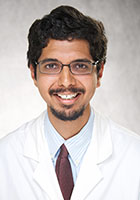
Bharat Kumar, MD, MME
Director, Rheumatology Fellowship Program
Clinical Associate Professor of Internal Medicine
Phone: 319-356-2863
Email: bharat-kumar@uiowa.edu
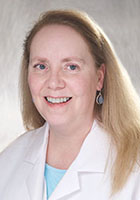
Rebecca Tuetken, MD, PhD
Associate Director, Rheumatology Fellowship Program
Clinical Professor of Internal Medicine
Phone: 319-353-7089
Email: rebecca-tuetken@uiowa.edu
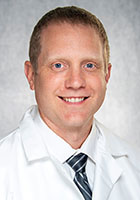
Benjamin Davis, MD, PhD
Interim Director, Division of Immunology
Clinical Professor of Internal Medicine
Contact Us
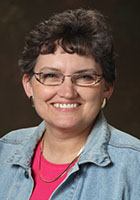
Patty Bruffey Thoene
Rheumatology Fellowship Coordinator
Department of Internal Medicine - C42-B GH
The University of Iowa Carver College of Medicine
200 Hawkins Drive
Iowa City, IA; 52242-1009
Email: patricia-bruffeythoene@uiowa.edu
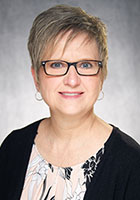
Denise Floerchinger
Internal Medicine Fellowship Program Administrator
Phone: 319.356.2732
Email: denise-floerchinger@uiowa.edu
Current Faculty
The Department of Internal Medicine has a faculty of nearly 300 professionals whose clinical, teaching, and research expertise spans the entire discipline of medicine.
Immunology Division Faculty (Allergy/Immunology and Rheumatology)
Department Faculty (alphabetical listing)
Current Fellows
Rheumatology Fellowship Pathway

Mani Maheshwari, MD (F1)
Medical School: Saba University School of Medicine
Residency: Leonard J. Chabert Medical Center
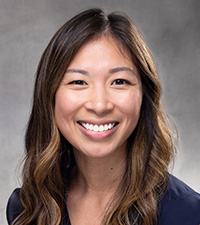
Lindsay Moy, DO (F2)
Medical School: Arizona College of Osteopathic Medicine of Midwestern University
Residency: Advocate Lutheran General Hospital
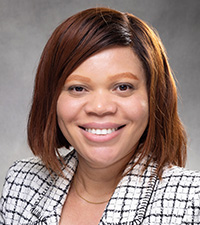
Ibiyemi Oke, MBChB (F2)
Medical School: Obafemi Awolowo University
Residency: Reading Hospital - Tower Health
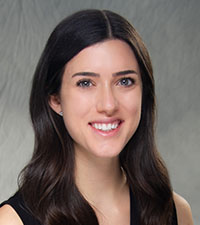
Madalyn Walsh, MD (F1)
Medical School: University of Iowa
Residency: University of Iowa
Allergy/Immunology and Rheumatology Dual Certification Pathway
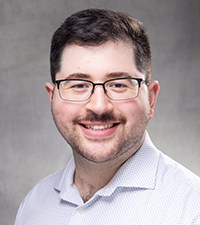
Amir Abidov, MD (F2)
Medical School: University of Arizona
Residency: Lankenau Medical Center
Chair, Department of Internal Medicine
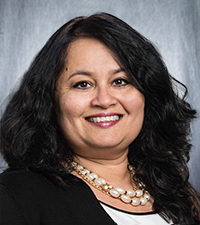
Upinder Singh, MD
Chair and DEO, Department of Internal Medicine
Professor of Medicine–Infectious Diseases